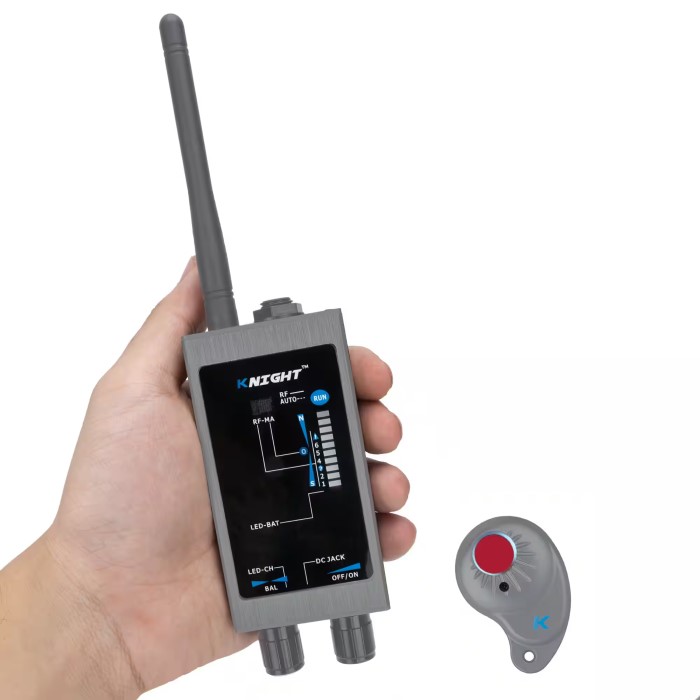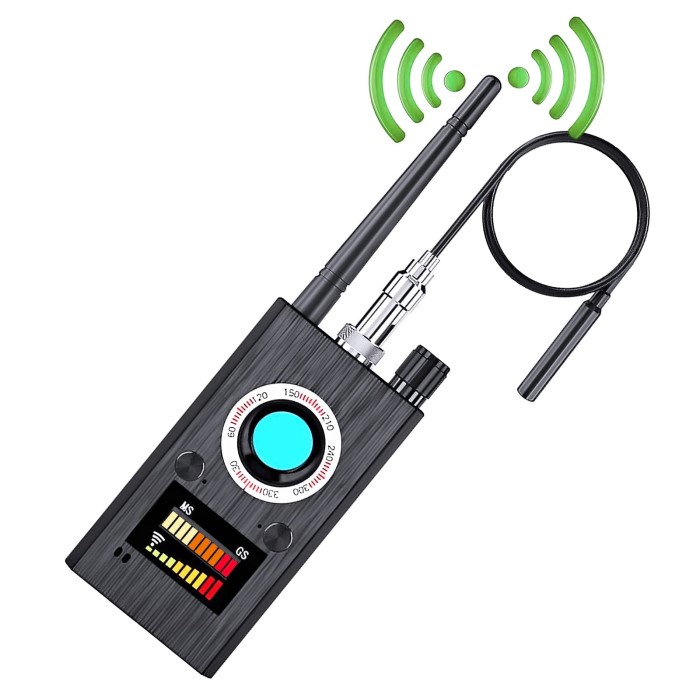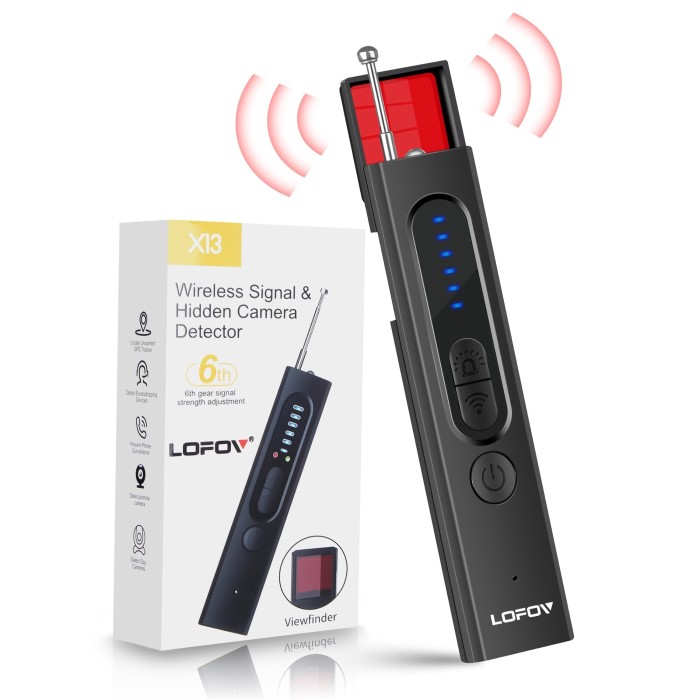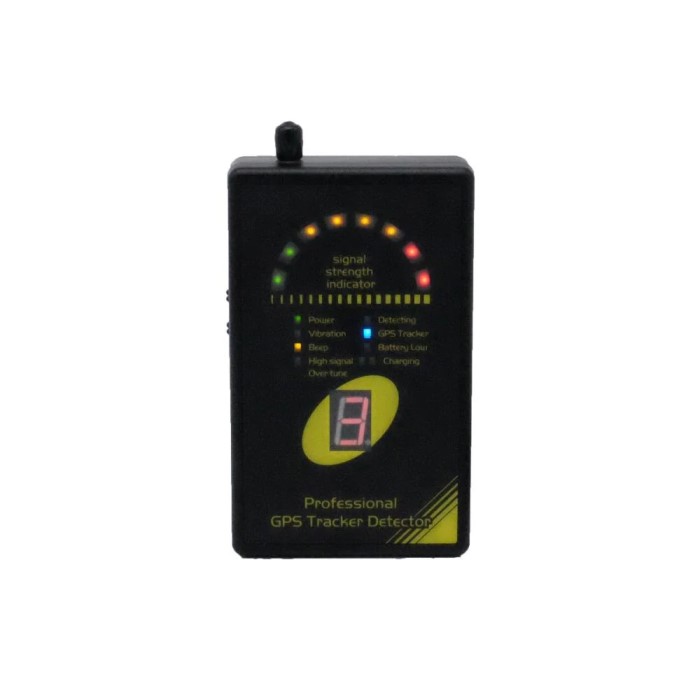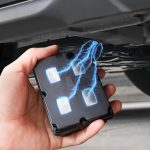Introduction
In today’s rapidly evolving technological landscape, personal security is more crucial than ever. The rise of GPS tracking technology has provided significant benefits, from navigating unfamiliar areas to tracking stolen vehicles. However, this same technology can also infringe on privacy, as individuals may find themselves unknowingly monitored by malicious trackers. To combat this concern, gps tracker detectors have emerged as essential tools to identify unwanted surveillance devices. As we venture into 2025, advancements in these detectors have introduced innovative features that enhance their efficacy. This article aims to delve into the latest technologies surrounding GPS tracker detector, their importance for personal safety, and frequently asked questions regarding their functionality.
![]()
Understanding GPS Tracker Technology
The foundation of GPS tracker detectors begins with understanding how GPS technology operates. GPS, or Global Positioning System, relies on a network of satellites to provide precise geographical data for various devices. This system has proven invaluable for numerous applications, including navigation, fleet management, and personal tracking.
While GPS tracking technology serves legitimate purposes, it also presents vulnerabilities. Unauthorized tracking can lead to privacy invasions, harassment, or criminal activities. GPS trackers can be clandestinely implemented on vehicles, bags, or even smartphones. As a result, the capability to detect these devices has become imperative for individuals seeking to protect their privacy. This is where GPS tracker detectors come into play—they provide a means to identify and eliminate unwanted tracking.
The Importance of GPS Tracker Detectors
The relevance of GPS tracker detectors has grown significantly in recent years. Here are a few reasons why these devices are essential for personal security:
- Protecting Privacy: The primary function of a GPS tracker detector is to ensure personal privacy. By detecting hidden tracking devices, individuals can maintain their autonomy and safeguard their movements.
- Providing Peace of Mind: Knowing that you have the right tools to detect potential tracking devices can greatly enhance one’s sense of security. Individuals can navigate their daily activities with confidence, knowing they are not being followed or monitored.
- Preventing Stalking and Unwanted Monitoring: GPS trackers are often used by stalkers or other malicious individuals to monitor victims. By detecting these devices early on, individuals can remove them and take appropriate action to ensure their safety.
- Deterring Criminal Activity: The presence of a GPS tracker detector can serve as a deterrent to potential attackers or trackers. If they believe they could be discovered, they may refrain from placing tracking devices on their targets.
- Promoting Awareness: Using GPS tracker detectors can raise awareness about personal security practices. Understanding how to effectively use these tools can empower individuals to take control of their safety.
Cutting-Edge Technologies
As we transition to 2025, advancements in GPS tracker detector technology continue to enhance their performance. Here are some of the notable innovations in GPS tracker detectors:
Enhanced Frequency Scanners
- Advanced Detection Capabilities: Modern GPS tracker detectors are equipped with sophisticated frequency scanners that can detect a wide range of frequencies. This advancement enhances the effectiveness of trackers in identifying signals from various tracking devices.
- Wide Spectrum Detection: These sophisticated scanners are capable of differentiating between numerous signals across different frequency ranges. As a result, users can easily pinpoint specific GPS frequencies, leading to more precise detection.
- Signal Differentiation: By utilizing advanced technology, enhanced frequency scanners can categorize signals based on their characteristics. This ability allows users to distinguish between potential threats and benign devices, increasing the overall reliability of the detection process.
- Improved Accuracy: With improved signal differentiation, users can trust the accuracy of the warnings provided by their GPS tracker detectors. This feature is especially important for safeguarding privacy and security amidst growing concerns about unauthorized tracking.
Integration with Mobile Applications
- Mobile App Support: Many contemporary GPS tracker detectors come with the capability to integrate with mobile applications. This feature significantly enhances the user experience by providing additional functionalities.
- Real-Time Alerts: Through the mobile app, users can receive real-time alerts that notify them of detected signals or potential tracking devices in their vicinity. This timely information enables individuals to take immediate action if necessary.
- Location History Tracking: Users can access location history through the app, allowing them to review previously detected signals and track patterns over time. This data can be valuable for recognizing potential threats or unusual tracking behavior.
- Community Notifications: Some apps offer community-based alerts where users can report detected trackers, contributing to a collective awareness. This feature fosters a sense of safety and shared vigilance among users.
Artificial Intelligence (AI) Enhancements
- Incorporating AI Technology: The integration of artificial intelligence technology is revolutionizing the functionality of GPS tracker detectors. AI enhances the devices’ ability to analyze signals more efficiently.
- Signal Pattern Analysis: AI algorithms can analyze the patterns of detected signals to identify anomalies. This capability improves the detection of unauthorized devices, leading to heightened security.
- Minimizing False Positives: One of the key benefits of AI integration is its ability to minimize false positives. By filtering out benign signals, users receive more accurate and reliable alerts, reducing unnecessary panic.
- Continuous Learning: AI-enabled devices can continuously learn from the signals they encounter. As they collect data over time, they become more adept at distinguishing between authorized and unauthorized tracking devices.
Compact and Portable Designs
- Increased Portability: Today’s GPS tracker detectors are designed with portability in mind. Manufacturers focus on creating compact devices that can easily fit into bags, pockets, or even on keychains.
- Convenient Access: The compact nature of these detectors ensures users have access to essential tracking tools whenever they need them. This convenience cannot be overstated, especially for individuals who frequently travel or engage in outdoor activities.
- Durable Construction: Many portable GPS trackers are built with durable materials, making them suitable for various environments. Whether in urban settings or rugged terrains, these devices can withstand the conditions they are exposed to.
- User-Centric Design: The emphasis on portability also includes ergonomic features that make them user-friendly. Lightweight designs ensure that carrying these devices throughout the day is comfortable and unobtrusive.
User-Friendly Interfaces
- Simplified User Interfaces: The latest models of GPS tracker detectors feature streamlined interfaces that enhance usability. This focus on user experience ensures that individuals of all technical skill levels can operate the devices effectively.
- Intuitive Navigation: Most devices come equipped with easy-to-read displays and straightforward menus, allowing users to quickly grasp the functions without extensive training or experience.
- Accessible Tutorials: Many manufacturers provide tutorials or guides to assist users in understanding the different features of their GPS tracker detectors. This additional support empowers users to utilize the device to its full potential.
- Customization Options: User-friendly interfaces often allow for customization. Users can set preferences for alerts, monitoring frequency, and other functions, tailoring the device to their specific needs.
Battery Efficiency
- Advancements in Battery Technology: Technological improvements in battery efficiency have led to significant advancements in GPS tracker detectors. These changes enhance the overall user experience by reducing the frequency of recharging.
- Extended Battery Life: Many modern devices now boast longer battery lives, allowing users to rely on them for extended periods without interruption. This development is particularly beneficial for individuals who need constant monitoring in various situations.
- Energy-Saving Features: Innovations in battery tech often include energy-saving modes that activate when the device is not in use. This feature helps preserve battery life, ensuring that the device remains functional when needed most.
- User-Friendly Charging Solutions: Many GPS tracker detectors now offer convenient charging options, including USB-C compatibility and wireless charging methods. These options cater to the needs of a tech-savvy population that values efficiency and convenience.
How to Use a GPS Tracker Detector
Using a GPS tracker detector effectively is essential for optimal results. Here are some guidelines to follow for efficient detection:
- Power On the Device: Start by turning on the GPS tracker detector and allowing it to fully boot up. Most devices will indicate when they are ready for use.
- Select the Appropriate Mode: Depending on the device, there may be multiple detection modes available. Choose the mode suited to your current situation—such as scanning a vehicle or having a general scan around your environment.
- Scan Your Surroundings: Begin scanning the area where you suspect a GPS tracker may be hidden. For vehicles, be sure to inspect the undercarriage, inside the glove compartment, beneath seats, and along the exterior.
- Pay Attention to Signals: Observe the signals displayed by your detector. A higher signal strength typically indicates the proximity of a GPS tracker.
- Respond to Alerts: If the device detects a potential tracker, take necessary precautions. This may entail removing the tracker and contacting authorities if warranted.
Frequently Asked Questions (FAQ)
Is there a way to detect a GPS tracker?
Yes, a GPS tracker detector is the most effective way to identify hidden GPS tracking devices. These devices scan for specific frequencies emitted by trackers, alerting users to their presence.
Can a cell phone detect a GPS tracker?
Some cell phone applications can help identify GPS trackers, especially when linked to Bluetooth or mobile networks. However, dedicated GPS tracker detectors offer greater reliability for thorough detection.
Do GPS tracker detectors really work?
Yes, GPS tracker detectors work effectively by identifying frequencies associated with unauthorized tracking devices. Investing in quality detectors can provide dependable results.
Can I detect if someone put a tracker in my car?
Yes, regularly using a GPS tracker detector can help you discover hidden trackers in your vehicle. Consistent checks will ensure your car remains tracker-free.
Conclusion
As we look toward 2025, the importance of GPS tracker detectors will only continue to grow. They are essential tools in the fight against unwanted surveillance, promoting personal privacy and safety. With evolving technologies, these devices are becoming more efficient, reliable, and user-friendly.
Understanding how to utilize a gps tracker detector effectively is vital for preserving your security. By prioritizing personal safety and investing in the latest technology, individuals can navigate through life with confidence, knowing they have the means to protect themselves from potential digital threats. Embracing these advanced solutions ensures you can enjoy your freedoms while remaining aware of your surroundings.
